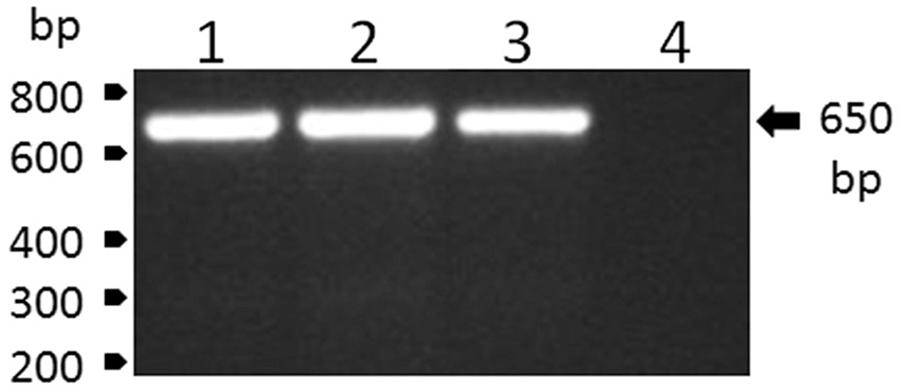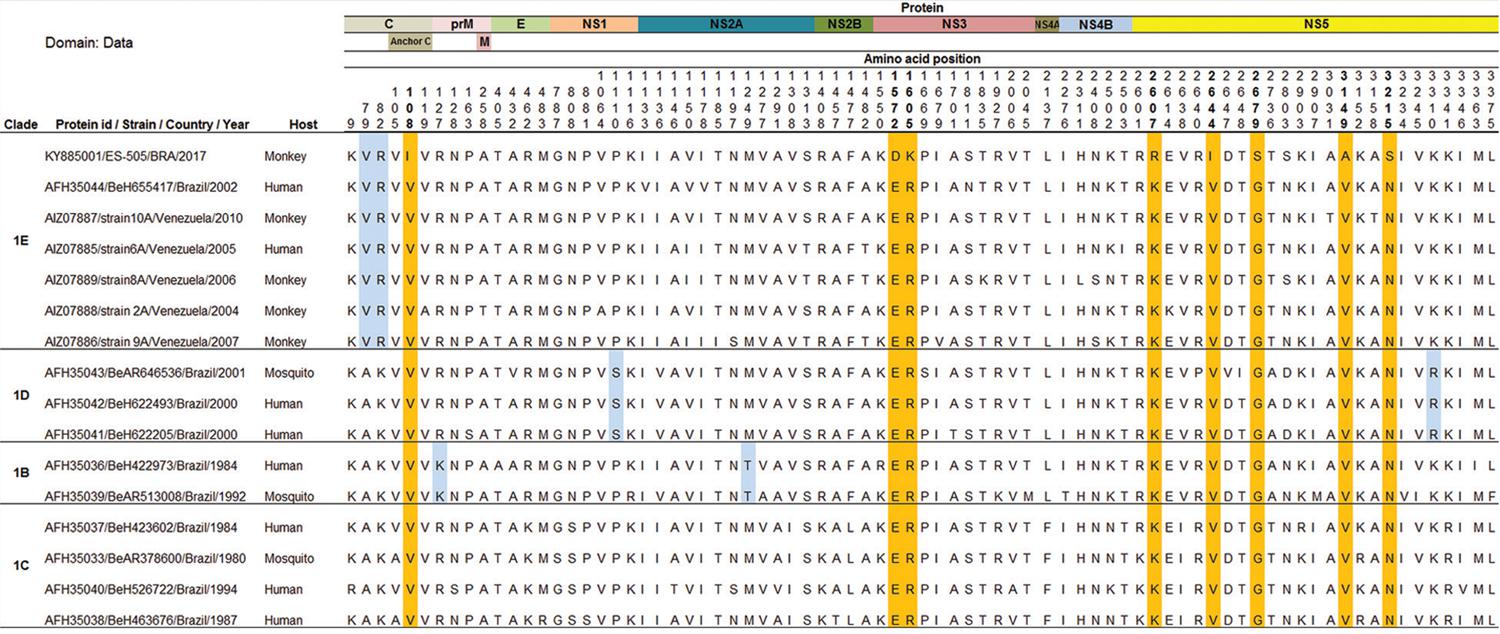The current yellow fever outbreak in Brazil is the most severe one in the country in recent times. It has rapidly spread to areas where YF virus (YFV) activity has not been observed for more than 70 years and vaccine coverage is almost null. Here, we sequenced the whole YFV genome of two naturally infected howler-monkeys (Alouatta clamitans) obtained from the Municipality of Domingos Martins, state of Espírito Santo, Brazil. These two ongoing-outbreak genome sequences are identical. They clustered in the 1E sub-clade (South America genotype I) along with the Brazilian and Venezuelan strains recently characterised from infections in humans and non-human primates that have been described in the last 20 years. However, we detected eight unique amino acid changes in the viral proteins, including the structural capsid protein (one change), and the components of the viral replicase complex, the NS3 (two changes) and NS5 (five changes) proteins, that could impact the capacity of viral infection in vertebrate and/or invertebrate hosts and spreading of the ongoing outbreak.
yellow fever virus; 2017 Brazil outbreak; amino acid changes



